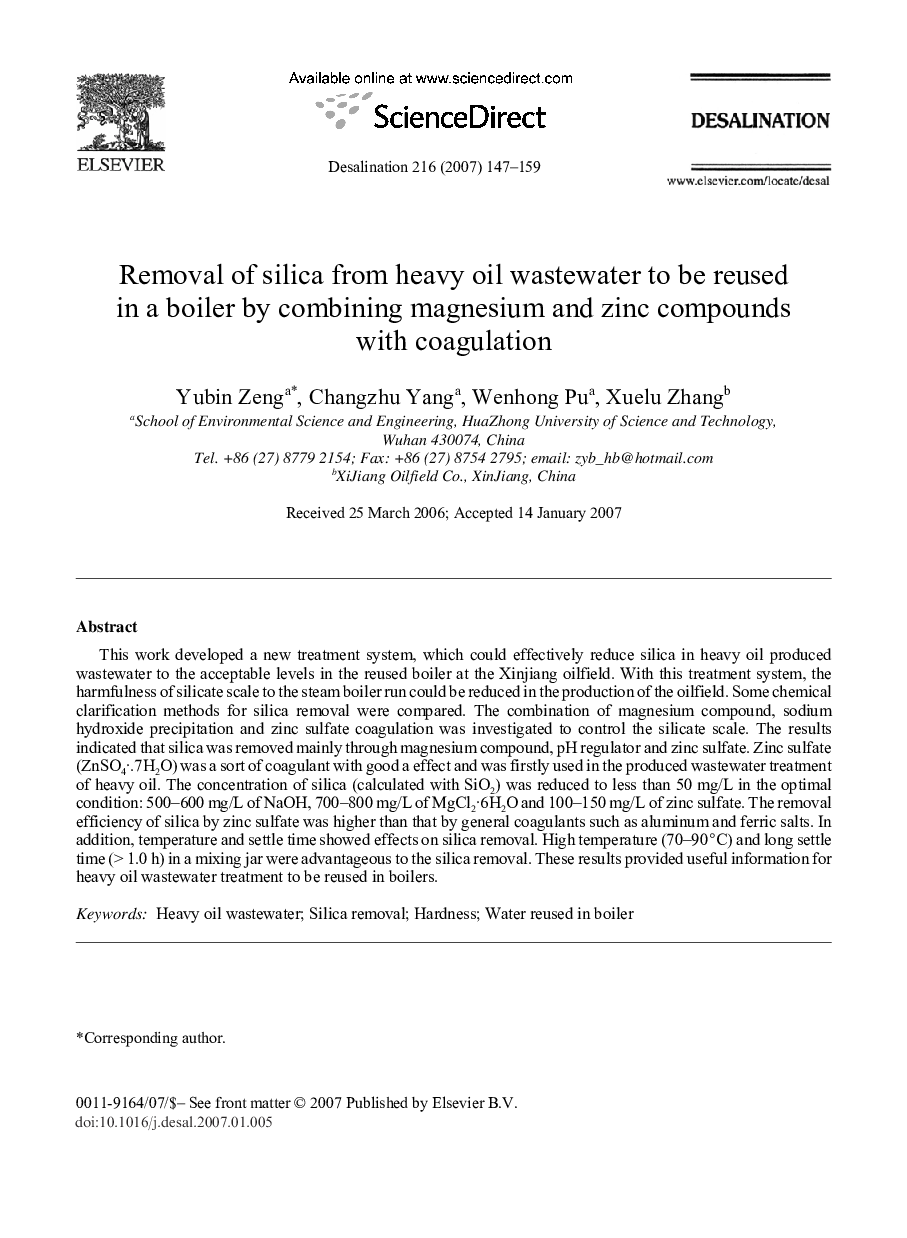| کد مقاله | کد نشریه | سال انتشار | مقاله انگلیسی | نسخه تمام متن |
|---|---|---|---|---|
| 627845 | 1455474 | 2007 | 13 صفحه PDF | دانلود رایگان |

This work developed a new treatment system, which could effectively reduce silica in heavy oil produced wastewater to the acceptable levels in the reused boiler at the Xinjiang oilfield. With this treatment system, the harmfulness of silicate scale to the steam boiler run could be reduced in the production of the oilfield. Some chemical clarification methods for silica removal were compared. The combination of magnesium compound, sodium hydroxide precipitation and zinc sulfate coagulation was investigated to control the silicate scale. The results indicated that silica was removed mainly through magnesium compound, pH regulator and zinc sulfate. Zinc sulfate (ZnSO4·.7H2O) was a sort of coagulant with good a effect and was firstly used in the produced wastewater treatment of heavy oil. The concentration of silica (calculated with SiO2) was reduced to less than 50 mg/L in the optimal condition: 500–600 mg/L of NaOH, 700–800 mg/L of MgCl2·6H2O and 100–150 mg/L of zinc sulfate. The removal efficiency of silica by zinc sulfate was higher than that by general coagulants such as aluminum and ferric salts. In addition, temperature and settle time showed effects on silica removal. High temperature (70–90°C) and long settle time (> 1.0 h) in a mixing jar were advantageous to the silica removal. These results provided useful information for heavy oil wastewater treatment to be reused in boilers.
Journal: Desalination - Volume 216, Issues 1–3, 5 October 2007, Pages 147-159